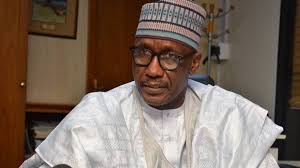Cyriacus Nnaji
Nigeria has come a long way in its search for a petroleum products supply system that is genuinely sustainable, seamless, available, and hitch-free, no wonder the Federal Government of Nigeria successfully went for full blast deregulation of the downstream sector.
Deregulation of the downstream oil industry by its very design would attract more foreign investors, eliminate the shortage of refined petroleum products, and combat refined petroleum commodities’ smuggling around the country’s boundaries.
Of course, a fully deregulated market will drive competition, innovation, create employments along value chain, boost investment in downstream infrastructure that have stagnated and remained in comatose for over 4 decades.
A better understanding of deregulation would help erase some misconceptions about the workability of the term deregulation, it is also necessary to emphasize here that removing subsidies means that the prices Nigerians pay at the pump reflects the actual cost of refining, logistics, and distribution. It ensures long-term sustainability for the sector after decades of inefficiency and subsidy abuse.
On a serious note, as a nation, it would be stressed that the subsidy regime that cost Nigeria billions of dollars and drained resources for critical infrastructure projects, is no longer sustainable, therefore, subsidy removal has allowed the market to operate freely. Consequently, prices may initially rise, but global oil prices, exchange rates, and local refining costs influence them.
According to the vision driving deregulation, if crude oil prices fall or refining becomes more efficient, pump prices will adjust accordingly. Removing subsidies also curtails fuel smuggling, which had been rampant under the subsidy regime.
For many industry experts, there is a need to correct the misconception that local refining should have led to cheaper fuel. According to them, the economic benefits of local refining from Dangote Refinery and other local refiners are much more than just cheap petrol.
The experts maintained that what is important is how deregulation can help drive industrialization, create thousands of jobs, expand downstream infrastructure, stabilize FOREX and make local currency gain strength which will ultimately reduce inflation and bring down cost of goods and services. It is also true that Nigeria will earn FOREX when it becomes net exporter of petroleum products which is the ultimate goal. From the point of view of the experts, deregulation will benefit the economy hugely.
They insisted that the action plan should be geared towards boosting the economy through a fully deregulated market that will drive competition, innovation, create employment along the value chain, boost investment in downstream infrastructure that have stagnated and remained in comatose for over four decades.
Of course, a renowned economist and Managing Director of Financial Derivatives Company (FDC) Limited, Bismarck Rewane has stressed that it would be suicidal for the Dangote Refinery to sell petrol below its production cost.
From his point of view, Dangote refinery or any refinery is in business to make a profit, stressing that Dangote will only produce at a price point where its marginal cost equals its marginal revenue and will not sell below cost, explaining that otherwise the company would have its operations grounded.
He said “What Dangote Refinery is assuring the country is quality and quantity but that pricing is not necessarily in the hands of Dangote Refinery but in the hands of the market. The market determines the price including the global crude price, guaranteed margin and the cost of processing. It’s as simple as that. Nobody goes into business to sell below its cost price, that is suicide.
“I think we should get that, rather than be carried away by false expectations. Yes, it’s good to know that the petrol is being lifted; it is a milestone from our own refineries which we had before. But now, we have the largest single-train refinery in the world. We have it as a result of the initiative of Alhaji Dangote, but now it is business time,” he asserted.
Other experts have continued to reiterate the fact that global market forces determine fuel prices in Nigeria and that despite local refining at Dangote and the soon-to-be-licensed NNPC Port Harcourt Phase I (currently undergoing final testing of completely and partially rehabilitated sections), the cost of crude oil and other production factors remain aligned with global benchmarks.
“Beyond these immediate benefits, the full deregulation and local refining also open the door to increased investment in the downstream sector, which will create thousands of jobs and catalyze industrialization,” according to the experts.
So it is a general belief that when the country is no longer reliant on importing refined petroleum products, Nigeria will produce and refine locally, thereby keeping the jobs and economic benefits within the country.
Worthy of note also is that the removal of subsidies opens up opportunities for local refineries to thrive. As investments increase in the refining sector, the downstream market will become more competitive, attracting investors and creating jobs that Nigerians need.
Also it is important to note that under the deregulated system, independent marketers are free to purchase fuel directly from Dangote Refinery and other local or international refineries. This ensures a more competitive market and broader distribution, helping to stabilize prices and improve access across the country. It has to be established at this point that NNPCL no longer hold a monopoly over fuel procurement.
More so, independent retail stations and NNPCL are free to buy PMS (from wherever it is available and more affordable) and sell it to Nigerians within a margin as stated in the PIA and regulated by the NMDPRA and other relevant agencies. It is a willing buyer-willing seller market now.
And in this market driven situation it is unwise to sell below market driven price, if not for anything, for the sake of sustainability. For instance, if NNPC bought a litre of petrol from Dangote at N977, it is not wise to sell below cost price considering the fact that NNPC has also become a business outfit under a deregulated petroleum sector.
Again, there is the need to make the clarification that NNPCL is no longer a regulator of fuel prices, because following the reforms under the Petroleum Industry Act (PIA), NNPCL now operates as a commercial entity and a limited liability company, competing with other players in various aspects of the petroleum and fuel market – upstream, midstream, and downstream. NNPCL purchases fuel based on agreed commercial terms from local or international refiners or suppliers and distributes it like other marketers to their retail stations or others who want to buy from them.
Therefore, the price of petrol, whether from NNPCL or any independent marketer, is decided by market forces, as well as the cost of products they receive from local refineries or global suppliers. For instance, the latest batches of products obtained from the private local refinery in Nigeria were sold to NNPCL by the refiners at around N998 per litre.
In the end, subsidy removal will free up billions of dollars that can be channeled into critical sectors like healthcare, education, infrastructure, and job creation. This will reduce the government’s borrowing needs, stabilize the Naira and create a more competitive market for domestic refining. Additionally, it will incentivize local refineries to expand their capacity, reducing the dependence on imported fuel and increasing Nigeria’s energy security. By significantly boosting investment in the downstream sector, Nigeria has the opportunity to generate thousands of jobs, drive industrialization, and liberate Nigeria from its reliance on imported refined petroleum products. Through local refining, Nigeria can bring home jobs that were once sent abroad, empowering local economy and nurturing talents.
Ideally, global market dynamics will drive prices, but fuel prices are expected to stabilize as local production increases and competition between independent marketers grows. Moreover, as more refineries come online, the reliance on expensive imported fuel will decrease, further stabilizing the market and potentially driving down prices. Global oil price declines will also directly impact pump prices in Nigeria. As investments continue to flow into the local refining sector, Nigeria is expected to see a reduction in fuel imports. This will drive long-term price stability and foster job creation in refining, logistics, and retail sectors.
It is also gladdening to understand that the Government is on top of the game to provide alternatives to petrol. It is promoting the adoption of Compressed Natural Gas (CNG), a cheaper and cleaner alternative to petrol through the Presidential CNG Initiative. CNG is currently priced significantly lower at N230 per litre, offering immediate relief to consumers. The government is also encouraging investment in infrastructure to support CNG adoption in the transport sector. The government has also started a convert-now-pay-later scheme to help vehicle owners convert their cars easily.
Nnaji is a Staff of the Authority Newspapers.



